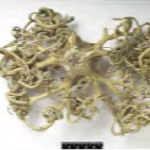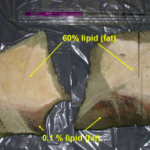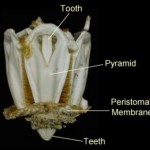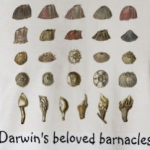![]() Got your attention? Good. Biodiversity is one of those words that gets thrown around a lot. Sometimes its meaningful, sometimes not. How does one measure biodiversity and what does it tell you about the ecosystem? In a compelling new paper, Danovaro et al. (2008) set out to understand how loss of biodiversity affects ecosystem processes in the earth’s largest environment. But have we explored enough of the deep ocean to really get a handle on this problem?
Got your attention? Good. Biodiversity is one of those words that gets thrown around a lot. Sometimes its meaningful, sometimes not. How does one measure biodiversity and what does it tell you about the ecosystem? In a compelling new paper, Danovaro et al. (2008) set out to understand how loss of biodiversity affects ecosystem processes in the earth’s largest environment. But have we explored enough of the deep ocean to really get a handle on this problem?
Admittingly, no. The authors acknowledge this as well so why bother putting together a paper on the matter? The deep sea is possibly one of the most important environments in terms of regenerating nutrients and keeping the ocean’s biogeochemical cycles spinning. Ocean primary productivity is a vital link between the land and the air. All three domains depend on each other to keep life thriving.
 So what types of organisms could so important to these ecosystem functions? Worms of course! Not just any worms either, nematodes. Peter Lambshead estimates that these charismatic meiofauna (critters less than 2 mm) account for 90% of the deep sea sediment’s multicellular abundance. Thats a lot. But that is not why nematodes are great. Oh no! Not to brag or anything but the diversity of other critter groups tracks the diversity of nematodes. In other words, nematodes are a surrogate taxa for total species diversity in any given system (not just the deep sea).
So what types of organisms could so important to these ecosystem functions? Worms of course! Not just any worms either, nematodes. Peter Lambshead estimates that these charismatic meiofauna (critters less than 2 mm) account for 90% of the deep sea sediment’s multicellular abundance. Thats a lot. But that is not why nematodes are great. Oh no! Not to brag or anything but the diversity of other critter groups tracks the diversity of nematodes. In other words, nematodes are a surrogate taxa for total species diversity in any given system (not just the deep sea).
Danovaro et al. (2008) overcame the minor obstacle of not knowing everything about the deep sea by cherry picking 116 well-studied deep sea sites from around the world, resulting in 270 samples. These samples consisted of worms and dirt. The really cool part of this study though,
Taken together, the relationships between biodiversity and ecosystem functioning and efficiency suggest that a higher biodiversity supports higher rates of ecosystem processes and an increased efficiency with which these processes are performed. The exponential relationship between biodiversity and ecosystem efficiency supports previous studies that hypothesized the existence of mutually positive functional interactions (ecological facilitation). In addition, results reported here from all latitudes and depths suggest that interactions of this kind among species are common in the largest biome of our biosphere.
But how does this support my grandiose claim that saving the deep sea saves the world? Well, for one, go back to my earlier discussion that deep sea sediments were responsible for biogeochemical cycling and nutrient regeneration. Tons of dead not-deep critters fall down, from the microscopic to whales. Thats a whole lotta carbon, nitrogen, phosphorus, etc. locked up in tissues. Nematodes, bacteria and other deep sea sediment inhabitants do the world a favor by eating dead stuff. This gets these essential nutrients out of the penalty box and back on the ice. Some of those nutrients go into growth and reproduction, other get excreted out with the rest of the ocean poo which makes the circuit to whoever needs a dose of poo… I mean a shot of nitrogen or phosphorus, like plankton. Shutting off the recyclers, shuts down the whole system. We don’t want that. We need our dead stuff-eaters and poop-eaters, they make the world go round. So lets do our part and save the deep sea, if only for the selfish reason of saving ourselves.
DANOVARO, R., GAMBI, C., DELLANNO, A., CORINALDESI, C., FRASCHETTI, S., VANREUSEL, A., VINCX, M., GOODAY, A. (2008). Exponential Decline of Deep-Sea Ecosystem Functioning Linked to Benthic Biodiversity Loss. Current Biology, 18(1), 1-8. DOI: 10.1016/j.cub.2007.11.056







I am just so grateful for the coprophiliacs at the bottom of the sea! I am happy to see that other critters are willing to take on the nasty work so we don’t have to.
Well, The FDA states a minimum amount of feces and insect body parts allowable in processed food…
“out of the penalty box and back on the ice” = favorite thing I’ve read all weekend